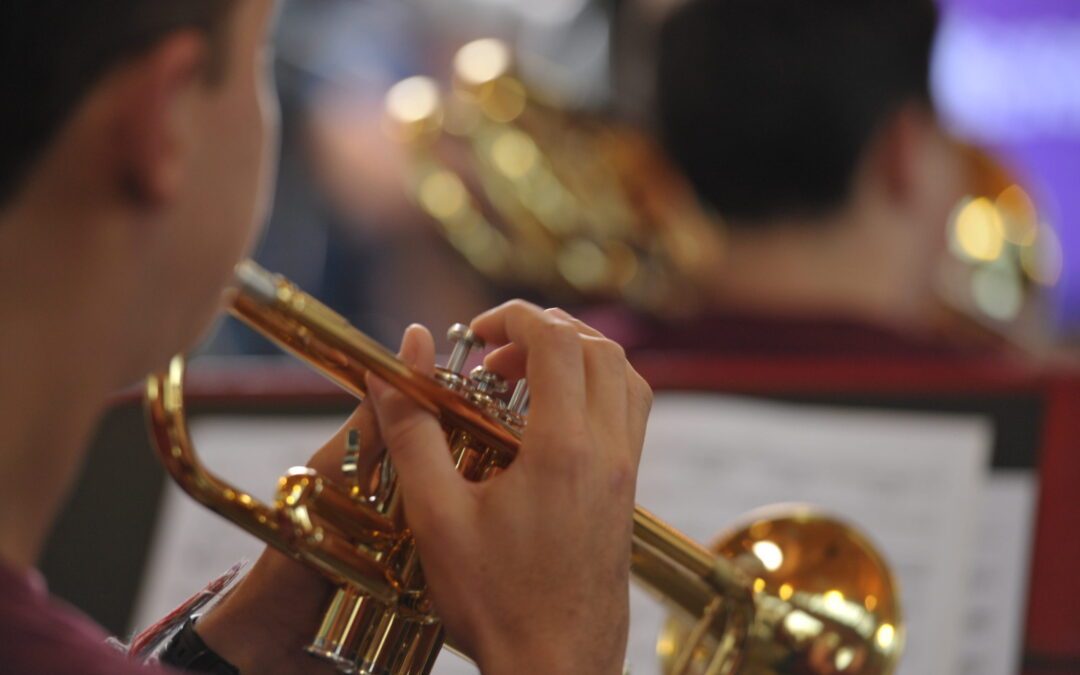Save The Music’s old tagline was “Music Equals Brainpower.” But how does music improve the mind? How does playing music affect the brain? Is it actually true that playing an instrument makes you smarter?
Among musicians, teachers, and parents, there is a strong intuitive sense that music education and academic performance are linked. But what do the research studies in music education say? How does music help the brain? How does music help you learn?
At Save The Music, we understand the importance of research in music education and we believe deeply in the connection between music and academic performance. That’s why we’ve built this resource housing powerful and inspiring studies on music and learning for parents, students, and teachers alike.
Here are three rigorous pieces of music education research and published articles for students on how music helps you learn, plus links and additional resources on music and intelligence if you want to dig in more.
1. University of Chicago Consortium on School Research, Arts Education and Social-Emotional Learning Outcomes Among K-12 Students (2019)
Summary: The authors reviewed over 200 studies on arts education spanning six decades. They conducted focus groups and interviews with key participants in the arts education process—including educators, administrators, students, and parents—to evaluate evidence of the effects of arts education on social-emotional development in school and after-school settings. They found a widespread belief that arts education contributes to children’s and adolescents’ social-emotional development:
Social-Emotional Learning: Exposure to arts opportunities allows students and teachers to engage with one another in a way that often stands in contrast to how they engage with each other in the context of regular academic instruction and that provides rich opportunities for social-emotional learning.
Why You Should Dig Deeper: In addition to the findings (including a section specific to music and learning), the literature review cites a comprehensive cross-section of studies on the impact of music and arts education and the question of music helps you learn. These research findings clearly indicate that musical development benefits extend well beyond musical creativity — it impacts various aspects of social skills, encouraging communication, collaboration, and other key skills.
2. National Endowment for the Arts – Catterall, J. S., Dumais, S. A., & Hampden-Thompson, G. (2012). The arts and achievement in at-risk youth: Findings from four longitudinal studies.
Summary: The report’s authors use four large national databases to analyze the relationship between arts involvement and academic and social achievements. In these research studies, music education in formal and informal contexts is linked to various aspects of learning and social skills development, leading researchers to reach a general assessment that general music education is valuable to children. Specifically:
Academic Achievement: Teenagers and young adults of low socioeconomic status (SES) who have a history of in-depth arts involvement show better academic outcomes than do low-SES youth who have less arts involvement. They earn better grades and demonstrate higher rates of college enrollment and attainment.
Civic Engagement: Young adults who had intensive arts experiences in high school are more likely to show civic-minded behavior than young adults who did not. They take an interest in current affairs, as evidenced by comparatively high levels of volunteering, voting, and engagement with local or school politics. In many cases, this difference appears in both low and high-SES groups.
Why You Should Dig Deeper: The report notes “a standard weakness of the literature has been a dearth of large-scale, longitudinal studies following the same populations over time, tracking the outcomes of students who received intensive arts exposure or arts learning compared with students who did not. This work is an attempt to fill that gap.” In my experience, it is also the most frequent answer to the question “isn’t there a big, gold standard study out there that shows that playing a musical instrument makes you smarter?”
3. Harvard Project Zero, Reviewing Education and the Arts Project (REAP), The Arts and Academic Improvement: What the Evidence Shows (2001)
Summary: REAP conducted a comprehensive search for all research on music in education from 1950-1999. 188 reports investigated the impact of the arts on learning and questions around how music improves the mind, music and intelligence, and whether playing an instrument makes you smarter.
Music & Academic Achievement: Three areas were found in which a substantial number of studies have demonstrated a clear causal link between education in an art form and achievement in a non-arts, academic area – including “Learning to Play Music and Spatial Reasoning.” Small causal relationships were also found between learning to play music and achievement in reading and math.
Why You Should Dig Deeper: This looks at causal links. In addition to a call for more and better music education research, the authors issue a strong call suggesting that asking what music makes you smart or how music helps you learn may not be the right questions:
“Let’s stop requiring more of the arts than of other subjects. The arts are the only school subjects that have been challenged to demonstrate transfer as a justification for their usefulness. If we required physical education to demonstrate transfer to science, the results might be no better, and probably would be worse. So, it is notable that the arts can demonstrate any transfer at all.”
4. ADDITIONAL MUSIC AND LEARNING RESEARCH STUDIES, ARTICLES FOR STUDENTS, AND INSIGHTS ON MUSIC’S IMPACT ON THE BRAIN
– Does playing an instrument make you smarter? NAMM “Music Matters”
– How does music help the brain? Northwestern Project on Music and The Brain
– What music makes you smart? PBS Kids
– How does music improve the mind? New England Board of Higher Education
5. BONUS IF YOU’VE READ THIS FAR:
Via our board member Laurie Schell, here is The Educational Opportunity Project at Stanford University, a national database of academic performance. They’ve developed a series of very cool data visualizations looking at educational opportunities in your school or community.

